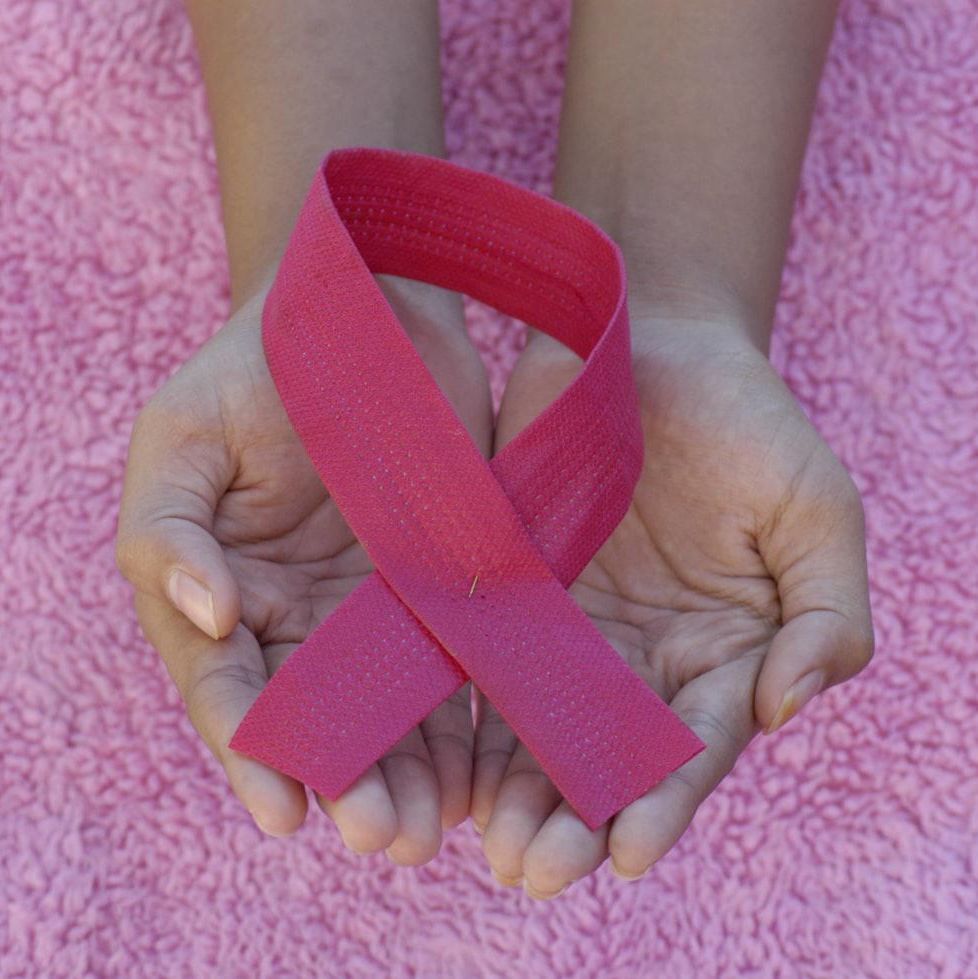The test detects two mutations, including the one Angelina Jolie brought to public attention in 2013.
This At-Home Test Checks for Breast Cancer Genetic Mutations

Using nothing more than a mail-in saliva sample, customers of the genetic testing service 23andMe can discover if they test positive for one of three breast cancer gene mutations.
According to an article from 23andMe, the FDA has said that users of the at-home genetic test can receive a personal report on three specific BRCA1/BRCA2 breast cancer gene mutations. The BRCA1 mutation, in particular, may be familiar to many following the highly publicized decision by actress Angelina Jolie to undergo a preventative double mastectomy after discovering that she carried the mutation, back in 2013.
A positive test for either BRCA mutation in women indicates an increased risk of breast and possibly ovarian cancers, while a positive test in men indicates an increased risk for breast cancer and prostate cancer. The mutations are most common in people of Ashkenazi (Eastern European) Jewish descent, and are only three markers out of more than a thousand that indicate an increased risk of breast cancer.
23andMe provides at-home genetic tests without a prescription, and the article described the FDA approval as “a major milestone in consumer health empowerment." This isn't the first time the company has offered such reports. Prior to 2013, 23andMe provided similar test results, before the FDA halted the practice until the accuracy of testing procedures could be confirmed.
This FDA approval indicates the tests pass muster, although the coveted approval comes with plenty of caveats. FDA officials were quick to explain that the three mutations are not the most common mutations in the general population, and that these are just three mutations out of thousands that can indicate breast and other cancers.
In other words, a negative test in no way rules out the possibility of an increased cancer risk.
“While the detection of a BRCA mutation on this test does indicate an increased risk, only a small percentage of Americans carry one of these three mutations and most BRCA mutations that increase an individual's risk are not detected by this test," said FDA official Donald St. Pierre in a press release. “The test should not be used as a substitute for seeing your doctor for cancer screenings or counseling on genetic and lifestyle factors that can increase or decrease cancer risk."
The FDA also stipulated that 23andMe BRCA1/BRCA2 reports come with a warning statement explaining the test's limitations, and that no medical action should be taken before consulting with a physician and getting test results confirmed.
Would you take this breast cancer test? Tell us @BritandCo!
Image via Angiola Harry/Unsplash


















